Middle East
Pro-Palestine activist arrested in Belgium after attending protest | Israel-Palestine conflict News
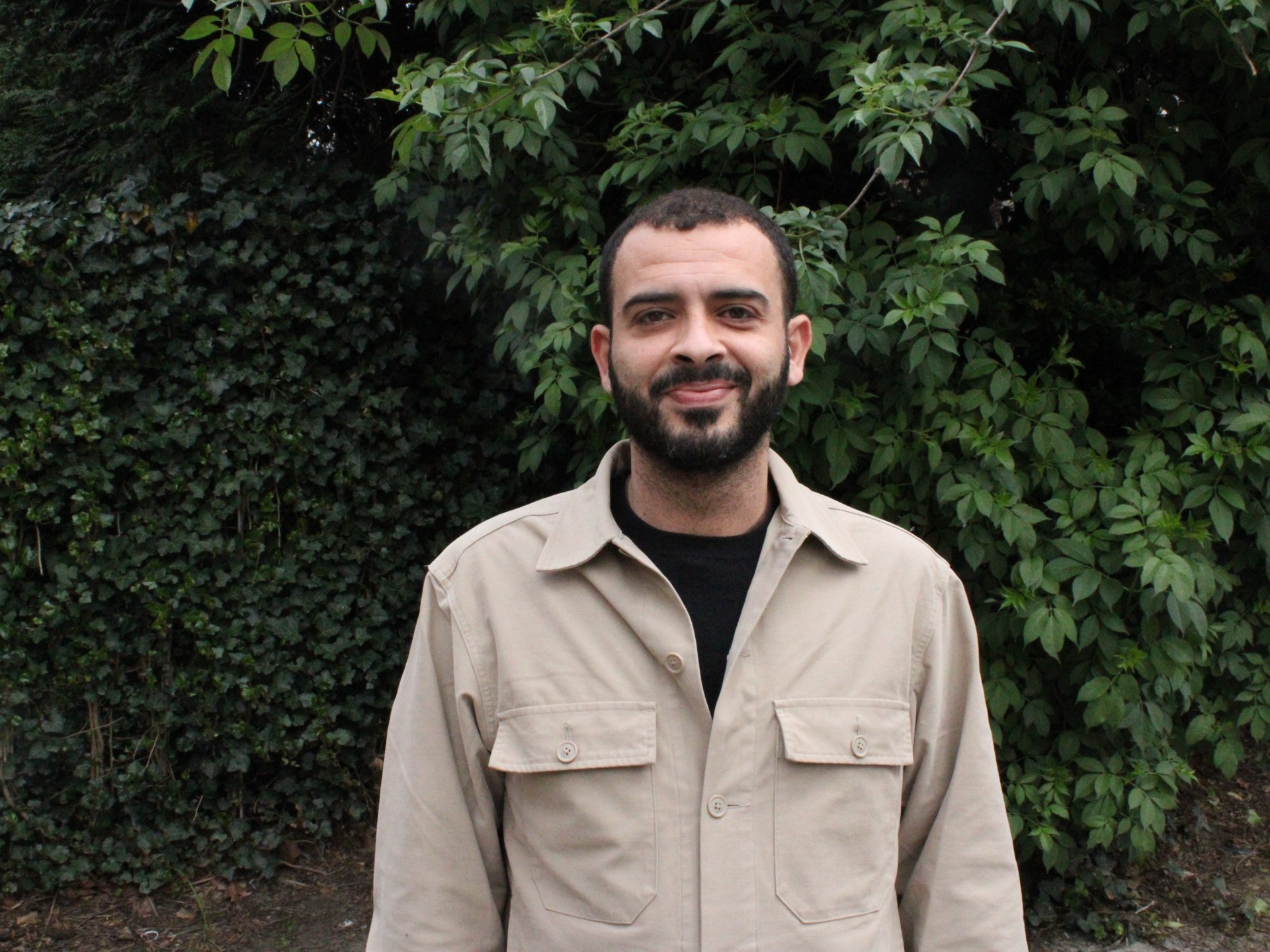
Brussels, Belgium – The recent arrest of a Palestinian activist in Belgium has raised alarm as the organisation he works for describes the incident as “a form of state harassment”.
Mohammed Khatib, the 35-year-old European coordinator for Samidoun, a global Palestinian prisoner solidarity network, was arrested on April 21 after attending a daily protest demanding an end to Israel’s genocide against Palestinians in Gaza.
Every evening, dozens of people, some sporting keffiyehs, gather on the steps of the former stock exchange in Brussels to drape a Palestine flag down the steps and chant slogans of solidarity in English, Arabic and French.
A police presence is usual, but Khatib felt uneasy when he noticed an officer photographing him
He left about 7:30pm (17:30 GMT) and was stopped nearby for what he called a “spontaneous” ID check by local police.
He was arrested and taken in a police van to a central station. About 30 supporters gathered outside, chanting, “Free our comrade!” before being dispersed by riot police about 10pm (20:00 GMT).
Khatib was then transferred to a nearby station. He was questioned without a lawyer and released about 5am (03:00 GMT).
Khatib said he spent hours waiting in a cell before being asked for a few minutes about an incident in April 2024 during which he was attacked with a knife. There was also a brief trip to the hospital for nonurgent medication.
“They were doing anything they could to keep me,” Khatib told Al Jazeera.
The Brussels Public Prosecutor’s Office told Al Jazeera: “Mohammed Khatib was arrested as part of an investigation into events that took place in April 2024. He was released after questioning.”
Belgium’s tensions with pro-Palestine movement
A Palestinian refugee born in the Ein El Hilweh camp in Lebanon in 1990, Khatib fled to Belgium alone at age 19, claimed asylum and co-founded Samidoun one year later in 2011. Campaigning for the rights of Palestinians incarcerated in Israel is his sole occupation.
Samidoun’s stance on Israel-Palestine has led to Khatib being designated as a “serious” security threat by the Coordination Unit for Threat Analysis (CUTA), an independent body that reports to Belgium’s justice and interior ministries.
Khatib said officers on April 21 justified the arrest initially with the CUTA designation.
It marked the second time he has been arrested. In October 2023, he was arrested at a demonstration after refusing to stop waving a Palestine flag.
The latest detention was “nothing in terms of what we are facing”, he said, referring to efforts in some Western nations to curtail the pro-Palestine movement.
Samidoun called the arrest “a form of state harassment targeting a prominent leader, not only of Samidoun, but of the growing movement against the ongoing genocide in occupied Palestine”.
“It’s hard not to see it in that light,” refugee and immigration lawyer Benoit Dhondt told Al Jazeera. “A lot of people are living in a state of schizophrenia because of how invisible the genocide in Gaza is being made in Europe.”
Meanwhile, “disproportionate policing of the pro-Palestine movement makes it very difficult to understand what is actually happening,” he said.
The author and journalist David Cronin wrote in The Electronic Intifada: “If the Belgian authorities enjoy any success in muzzling Mohammed Khatib and Samidoun, then we have to ask: Who is next? All Palestine solidarity campaigners are at risk.”
In May last year, police used water cannon and tear gas to disperse a peaceful protest outside the Israeli embassy in Brussels under instructions from Mayor Boris Dillies, who said the demonstration was unauthorised. An open letter signed by Amnesty International described the measure as “contrary to international law”.
Earlier that month, police had arrested about 40 protesters when a demonstration at the US embassy went overtime.
In a report on the state of the right to protest published in July, Amnesty noted that administrative arrest “is increasingly used to prevent people from participating in protests” in Belgium.
Human rights and immigration lawyer Helene Crokart told Al Jazeera that arrests “are not isolated incidents” and “sometimes amount to outright intimidation”.
Samidoun, Khatib in the crosshairs
On October 15, then-State Secretary for Migration and Asylum Nicole De Moor, a Christian Democrat, announced a procedure to strip Khatib, who she called a “hate preacher”, of asylum.
“Even if someone has already been recognised as a refugee but that person turns out to be an extremist, recognition can be withdrawn,” she stated.
On the same day, the United States and Canada blacklisted Samidoun, deeming it a “sham charity” and accusing it of raising funds for the Popular Front for the Liberation of Palestine, a designated “terrorist” organisation.
Samidoun denied the allegation.
Germany banned Samidoun in 2023, alleging it celebrated the October 7, 2023, Hamas-led attacks in southern Israel. Khatib said, “Some Palestinians were distributing baklava in the street. And we were there with the Samidoun flag.”
Khatib has also been banned from entering Switzerland for 10 years, which occurs only when an individual poses what is considered a “concrete” threat to national security, according to a Swiss government spokesperson. He was not permitted to enter the Netherlands for a university talk in October.
During the October 2023 attacks, 1,139 people were killed and more than 200 were taken captive into Gaza. Since then, Israel’s latest war on Gaza has killed more than 52,000 people, including more than 17,000 children, in the besieged enclave. Israel has justified the onslaught as an attempt to crush Hamas.
According to a CUTA spokesperson, Samidoun is classified as an “extremist” organisation, which “is not a criminal offence”.
“We are more interested in keeping an eye on the leadership, the members, what they do and say, how they disrupt public order and what group they are potentially targeting,” the spokesperson said.
Belgium’s right-wing government, appointed in February, is markedly more sympathetic to Israel than its predecessor.
Prime Minister Bart De Wever of the New Flemish Alliance party said Belgium would not arrest Israeli Prime Minister Benjamin Netanyahu despite an International Criminal Court (ICC) warrant for his arrest on charges of crimes against humanity. Four months earlier, then-Liberal Premier Alexander De Croo stated the opposite.
The coalition headed by De Wever intends to “ban dangerous radical organisations such as Samidoun due to their ties to terrorism or for spreading antisemitism”, according to official documents.
But a ban would likely take a long time to implement because Belgian positions depend on European Union and United Nations Security Council decisions.
De Moor’s successor, Anneleen Van Bossuyt, supports the initiative to revoke Khatib’s refugee status. Such a decision is made independently by the commissioner general for refugees and stateless persons and must rely on proof of a serious crime.
A decision to strip someone’s status may be appealed, but once finalised, the immigration office could issue an order for a person to leave the country.
The case depends on material that authorities said they are not sharing, even with Khatib.
Dhondt warned of a “chilling effect” on freedom of expression.
The government is using Khatib’s case as a “propaganda tool” to demonstrate strong policies on “extremism”, he said, even though it “can’t really say why [Khatib poses any threat]”.
Khatib denies all allegations of hate speech.
“If they had something they could use against me, I would not be sitting here. I would be in prison.
“The goal of this intimidation is to silence the movement, to make an example of us and say, ‘If you do the same, this is your future’. We will fight this.”
‘Smear campaign’
Khatib has previously called for Israel to be “dismantled” and said, “We do not call Hamas’s attack in Israel a terror attack. We call it justified resistance.”
Seen as hardline positions by some, mainstream activists have distanced themselves from Samidoun but urged Brussels to uphold freedom of expression.
The Human Rights League, a nonprofit organisation that has criticised Belgian authorities for allowing the transit of arms to Israel, does not wholly endorse Khatib’s views but “reiterates the need to protect freedom of expression, including for statements that ‘offend, shock or disturb’, according to the European Court of Human Rights”.
“While the positions defended by Mohammed Khatib and Samidoun can undeniably be described as radical, … to our knowledge they have never been prosecuted for any criminal offence (including for anti-Semitic statements) nor have they caused any public disorder,” the rights group said in a 2024 report.
The group linked Khatib’s case to other measures, such as local bans on keffiyehs and other pro-Palestine symbols and the temporary suspension of decisions on Palestinian asylum applications. The report concluded that the lack of a decision on revoking Khatib’s refugee status suggests insufficient evidence against him.
The Union of Progressive Jews in Belgium last year denounced a “smear campaign” against Khatib.
“Whatever political differences we may have, this threat is intolerable and shakes the very foundations of our democracy.”
Middle East
Drones hit ‘Freedom Flotilla’ Gaza aid ship in international waters | Israel-Palestine conflict News

Freedom Flotilla Coalition demands Israel answer to violations of international law, including blockade and ‘bombing of our civilian vessel’.
A ship carrying aid to Gaza in a bid to break Israel’s blockade has been hit by drones in international waters off Malta, according to the Freedom Flotilla Coalition (FFC), the group that organised the mission.
The FFC said in a statement on Friday that the vessel, now located 14 nautical miles (25km) from Malta, was the target of two drone strikes while on its way to Gaza. The ship had been seeking to deliver aid to the besieged enclave, where aid groups warn people are struggling to survive following a two-month total blockade by Israel.
“Armed drones attacked the front of an unarmed civilian vessel twice, causing a fire and a substantial breach in the hull,” the group said.
The statement did not directly accuse Israel of carrying out the attack.
However, it did demand that “Israeli ambassadors must be summoned and answer to violations of international law, including the ongoing blockade and the bombing of our civilian vessel in international waters”.
Israel has not commented on the drone strikes.
BREAKING: At 00:23 Maltese time, a #FreedomFlotilla ship was subjected to a drone attack. The front of the vessel was targeted twice, resulting in a fire and a breach in the hull. The ship is currently located in international waters near #Malta. An #SOS distress signal was sent. pic.twitter.com/J6oEQafuOb
— Freedom Flotilla Coalition (@GazaFFlotilla) May 2, 2025
Nicole Jenes of the FFC told Al Jazeera that the attack on the Conscience at 12.23pm local time (10:23 GMT) on Friday morning blew a hole in the vessel and set the engine ablaze.
The strike left 30 Turkish and Azeri activists on board engaged in a frantic effort to bail out water and keep the vessel afloat, she added.
The group statement said “a vessel from Southern Cyprus” had been dispatched after it sent SOS calls.
Later on Friday, the Maltese government said in a statement that the fire on the ship had been brought under control and that the vessel was being monitored by authorities. It was unclear whether the authorities had directly intervened to put out the fire and what has happened to the activists.
Jenes, currently in Malta, said that the group was not aware of the situation on board the ship as communication with the crew had been lost.
“They were hiding in the night in the rooms of the ship because they were afraid of the drones … We lost contact with them,” she said.
‘On the verge of total collapse’
The FFC, formed by peace activists from several countries last year, uses a converted trawler to try to defy Israel’s blockade on Gaza.
Israel halted humanitarian aid two months ago, shortly before it broke a ceasefire and restarted its war against Hamas, which has devastated the Palestinian enclave and killed more than 50,000 people.
“It’s very important to … understand this attack is an extension of the genocide that is happening in Gaza and cannot pass unpunished,” Jenes said, insisting that the FFC is asking the world to turn its eyes to the blockade.
The International Committee of the Red Cross (ICRC) said in a report released on Friday that the humanitarian response in Gaza is “on the verge of total collapse”.
“Six weeks of intense hostilities, combined with a complete blockage of aid for two months, have left civilians without the essentials they need to survive. Without an immediate resumption of aid deliveries, the will not have access to the food, medicines, and life-saving supplies needed to sustain many of its programmes in Gaza,” the ICRC said.
Middle East
Palestine the world’s most dangerous place for journalists, RSF says | Israel-Palestine conflict News

US President Donald Trump overseeing ‘troubling deterioration’ in press freedom in US, Reporters Without Borders says.
Palestine has become the world’s most dangerous state for journalists amid Israel’s war on Gaza, with dozens of reporters likely killed specifically due to their work, a media freedom watchdog has said.
Israeli forces killed nearly 200 journalists in the first 18 months of the war, at least 42 of whom were slain while doing their job, Reporters Without Borders said on Friday as it released its World Press Freedom Index 2025.
“Trapped in the enclave, journalists in Gaza have no shelter and lack everything, including food and water,” said the Paris-based group, which is also known by its French acronym RSF.
“In the West Bank, journalists are routinely harassed and attacked by both settlers and Israeli forces, but repression reached new heights with a wave of arrests after 7 October, when impunity for crimes committed against journalists became a new rule.”
Journalists suspected of collaborating with Israel are also hampered in their work by Hamas and the Islamic Jihad, while a cybercrime law adopted by the Palestinian Authority limits freedom of expression and freedom of the press, RSF said in its report.
Palestine ranked 163rd for press freedom in the latest index, a drop of six places from 2024.
Of 180 jurisdictions, 112 saw declines in press freedom, with the average score globally falling to a record low of 55 points, according to the report.
The United States dropped two places to a record low of 57, with the watchdog accusing US President Donald Trump of overseeing a “troubling deterioration in press freedom”.
“President Donald Trump was elected to a second term after a campaign in which he denigrated the press on a daily basis and made explicit threats to weaponize the federal government against the media,” RSF said.
“His early moves in his second mandate to politicise the Federal Communications Commission (FCC), ban The Associated Press from the White House, or dismantle the US Agency for Global Media, for example, have jeopardised the country’s news outlets and indicate that he intends to follow through on his threats, setting up a potential crisis for American journalism.”
Israel dropped 11 places to 112th, with Reporters Without Borders pointing to growing restrictions on press freedom, media plurality and editorial independence since the start of the war in Gaza.
“Since 2021, only journalists working for Channel 14, a media outlet that covers Prime Minister Benjamin Netanyahu in a favourable light, have been granted interviews with the country’s leader, who accuses the Israeli press of conspiring against him,” the group said.
“In 2024, the Minister of Communication called on the government to boycott Haaretz, one of the few newspapers to criticise Netanyahu’s policies, including the massacre of civilians in Gaza – a topic that is largely suppressed.”
Eritrea was the lowest-ranked jurisdiction, just behind North Korea and China.
Norway was ranked first for press freedom, followed by Estonia, the Netherlands and Sweden.
Middle East
Israel strikes near Syria’s presidential palace, issues warning over Druze | Syria’s War News
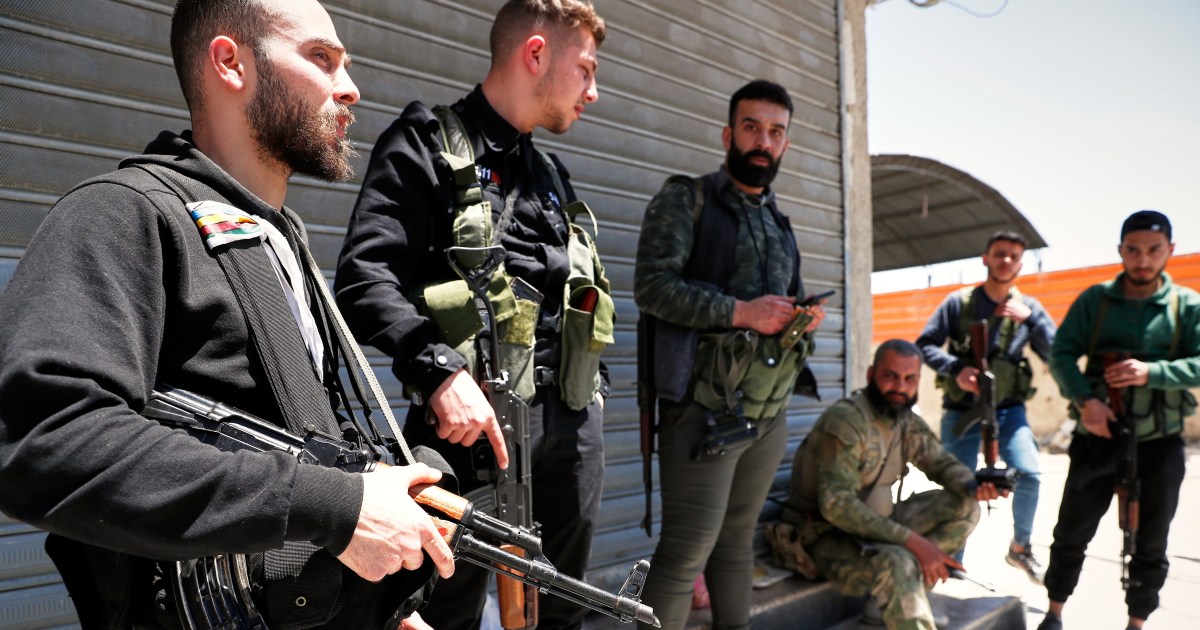
Israel has ramped up attacks on Syria following a week of sectarian violence against the Druze community.
Israel’s military has launched air strikes near Syria’s presidential palace in Damascus after accusing the Syrian authorities of failing to protect the country’s Druze minority from sectarian violence.
The attack early on Friday was the second of its kind by Israel this week and is seen as sending a strong message to Syria’s transitional government led by President Ahmed al-Sharaa.
“This is a clear message to the Syrian regime: We will not allow [Syrian] forces to deploy south of Damascus or any threat to the Druze community,” Israeli Prime Minister Netanyahu said in a joint statement with Israel’s Defence Minister Israel Katz shortly after the attack.
More than 100 people were killed this week during fighting between pro-government forces and Druze fighters in Syria.
The violence has been condemned as a “genocidal campaign” by Syria’s Druze spiritual leader Sheikh Hikmat al-Hijri, who called for an immediate intervention by “international forces to maintain peace and prevent the continuation of these crimes”.
On Thursday, Israel’s Foreign Minister Gideon Saar urged the international community to “fulfil its role in protecting the minorities in Syria – especially the Druze – from the regime and its gangs of terror”.
Israel has previously called Syria’s transitional government a “terror group from Idlib that took Damascus by force” and has ramped up its support for the Druze minority this week.
The Druze minority are a 10th-century offshoot of a branch of Shia Islam, and live primarily in Syria, Lebanon and Israel, and have been allies of Israel with many Druze serving in the Israeli military.
Syrian Foreign Minister Asaad al-Shaibani on Thursday called for “national unity” as “the solid foundation for any process of stability or revival”.
“Any call for external intervention, under any pretext or slogan, only leads to further deterioration and division,” he wrote on X.
The sectarian violence poses one of the most serious challenges yet to the government of al-Sharaa, who led a coalition of rebel groups to overthrow Syria’s President Bashar al-Assad in December.
Syria has been faced with sectarian violence since then.
The fighting this week follows a massacre in March of more than 1,700 civilians from the Alawite community by security forces and allied groups, according to the UK-based Syrian Observatory for Human Rights.
The Alawites, who are traditionally based near the Mediterranean coast in western Syria, are the same ethnic group as the toppled al-Assad.
-
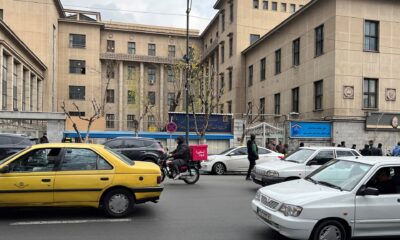
 Middle East2 days ago
Middle East2 days agoIran hangs man convicted of spying for Israel’s Mossad | Espionage News
-

 Europe2 days ago
Europe2 days agoA 400-year-old tea and coffee shop faces closure in Amsterdam as tourism stokes price rises
-
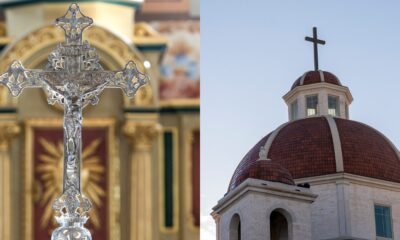
 Education2 days ago
Education2 days agoSupreme Court considers endorsing country’s first religious public charter school
-
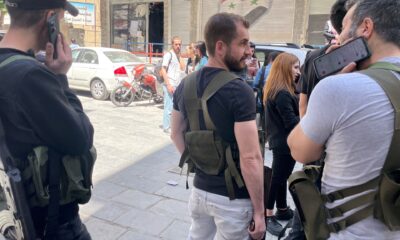
 Middle East2 days ago
Middle East2 days agoSyria says it rejects ‘foreign intervention’ after Israeli strikes | News
-
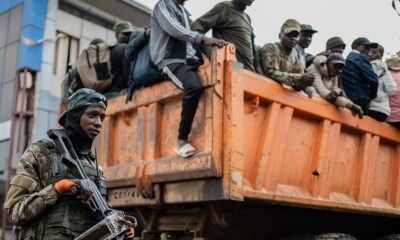
 Africa2 days ago
Africa2 days agoRed Cross escorts hundreds of stranded Congolese soldiers from rebel-controlled city to capital
-

 Conflict Zones2 days ago
Conflict Zones2 days agoKashmir attack: How India might strike Pakistan – what history tells us | Border Disputes News
-

 Europe2 days ago
Europe2 days agoYouras Ziankovich: American detained in Belarus is freed, US official says
-

 Lifestyle2 days ago
Lifestyle2 days agoWhat is dandyism, the Black fashion style powering the 2025 Met Gala?




